
Phenomenology and the Cognitive Sciences
Scope & Guideline
Illuminating the Pathways of Consciousness and Knowledge
Introduction
Aims and Scopes
- Phenomenological Investigation of Consciousness:
The journal emphasizes the exploration of consciousness through phenomenological methods, focusing on first-person accounts and subjective experiences to understand cognitive phenomena. - Interdisciplinary Approaches to Cognition:
It encourages research that crosses traditional boundaries between philosophy, psychology, neuroscience, and artificial intelligence, fostering a dialogue between different methodologies and perspectives. - Embodiment and Situated Cognition:
A core area of focus is the relationship between cognition and the body, emphasizing how embodied experiences inform cognitive processes and social interactions. - Narrative and Self-Modeling:
The journal explores how narratives and self-models contribute to identity formation and the understanding of psychological conditions, particularly through a phenomenological lens. - The Role of Emotions in Cognition:
Research often addresses how emotions influence cognitive processes, integrating affective dimensions into the understanding of mental states and behavior. - AI and Consciousness:
The journal also investigates the implications of artificial intelligence for our understanding of consciousness, agency, and the nature of mind.
Trending and Emerging
- Enactivism and Embodied Cognition:
There is a growing emphasis on enactivism, which posits that cognition arises through a dynamic interaction between organisms and their environments, reflecting a shift towards understanding cognitive processes as inherently embodied. - AI and the Philosophy of Mind:
Increasingly, the journal is publishing works that explore the implications of artificial intelligence for our understanding of consciousness, agency, and ethical considerations in technology. - Collective and Social Phenomena:
Research focusing on collective emotions, social cognition, and shared agency is on the rise, indicating a recognition of the importance of social contexts in shaping individual cognitive experiences. - Mental Health and Phenomenology:
There is an emerging trend of applying phenomenological approaches to mental health issues, exploring how subjective experiences inform our understanding of psychological conditions. - Narrative and Identity Studies:
The exploration of narrative structures and their impact on self-identity and personal experiences is increasingly prevalent, reflecting a broader interest in how stories shape our understanding of the self. - Cultural and Contextual Influences on Cognition:
Research that examines the impact of cultural and situational contexts on cognitive processes is gaining traction, highlighting the significance of external factors in shaping mental experiences.
Declining or Waning
- Traditional Cognitive Models:
There is a noticeable decline in publications focused solely on traditional cognitive models that do not integrate phenomenological insights, indicating a shift towards more embodied and situated approaches. - Dualism and Cartesian Perspectives:
Research that adheres strictly to dualistic or Cartesian frameworks is less frequently encountered, suggesting a move towards more integrated and holistic understandings of mind and body. - Overemphasis on Neurophysiological Mechanisms:
While neuroscience remains important, there is a decreasing trend in studies that prioritize neurophysiological explanations over phenomenological interpretations of cognitive experiences. - Classical Psychological Constructs:
The focus on classical psychological constructs, such as behaviorism or strict information processing models, is waning, as the journal increasingly embraces more nuanced and context-sensitive approaches.
Similar Journals

Journal of Aesthetics and Phenomenology
Charting New Territories in Aesthetic PhilosophyJournal of Aesthetics and Phenomenology, published by Routledge Journals, Taylor & Francis Ltd, is a significant resource within the field of philosophy, focusing specifically on the intricate relationship between aesthetics and phenomology. Since its inception in 2014, this journal has fostered critical dialogue among scholars, highlighting contemporary debates and innovative theoretical perspectives. With an ISSN of 2053-9320 and E-ISSN of 2053-9339, the journal offers a platform for researchers to contribute original articles that delve into the complexities of human experience and artistic expression. Although currently categorized in Q3 in Philosophy and positioned at Rank #630/806 in the Scopus rankings, it consistently attracts submissions from promising scholars eager to engage with its themes. While not an open access journal, it provides valuable insights into aesthetic theory and philosophy, appealing to students, researchers, and professionals alike, who are keen on exploring the nuances of these interrelated fields.

RESEARCH IN PHENOMENOLOGY
Engaging Minds Through Phenomenological InquiryRESEARCH IN PHENOMENOLOGY, published by BRILL, stands as a vital academic journal dedicated to the exploration of phenomenological research within the realm of Philosophy. With an ISSN of 0085-5553 and an E-ISSN of 1569-1640, this journal has been a respected platform since its inception, reflecting a rich history spanning from 1971 to the present. Despite not currently offering open access, it provides invaluable insights and scholarly articles that contribute significantly to the understanding of phenomenology and related disciplines. The journal holds a prestigious Q3 ranking in the 2023 category of Philosophy, with a Scopus ranking of 409 out of 806 in Arts and Humanities, indicating a solid standing in academic discourse. Academics, researchers, and students alike are encouraged to engage with the cutting-edge studies published in this journal, which serves as an essential resource for advancing phenomenological thought and fostering interdisciplinary dialogue.

Psychology of Consciousness-Theory Research and Practice
Illuminating the Science of ConsciousnessPsychology of Consciousness-Theory Research and Practice, published by the Educational Publishing Foundation, American Psychological Association, serves as a pivotal platform for innovative research at the intersection of psychological theory and practical application. With its ISSN 2326-5523 and E-ISSN 2326-5531, this journal has established itself as a significant contributor to the field since its inception in 2016, continuing to shape discussions on consciousness through diverse psychological lenses. Recognized in 2023 with prestigious rankings such as Q2 in Clinical Psychology and Q2 in Social Psychology, it features rigorous studies that resonate widely among scholars and practitioners alike. Notable for its commitment to open discourse, although not open access, the journal encourages the exchange of ideas while maintaining high academic standards. Researchers and students will find invaluable insights into consciousness studies, informed by the latest empirical findings and theoretical developments, bolstering the journal's reputation as an essential resource for those dedicated to advancing the science of psychology.
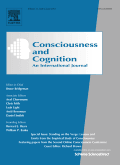
CONSCIOUSNESS AND COGNITION
Exploring the Depths of Mind and AwarenessConsciousness and Cognition is a prestigious academic journal dedicated to advancing the understanding of cognitive processes and consciousness. Published by Academic Press Inc, Elsevier Science, the journal has maintained a prominent presence in the field since its inception in 1992, reaching a converged publication timeline through 2024. With an impact factor reflecting its high relevance, it holds a Q1 rank in Arts and Humanities and Q2 ranks in both Developmental and Educational Psychology and Experimental and Cognitive Psychology as of 2023. Researchers and academics utilize this journal as a critical resource for the latest empirical findings, theoretical advancements, and innovative methodologies in understanding the intricacies of human cognition and conscious experience. Although it does not offer open access, the journal’s extensive contributions help shape active dialogues within this interdisciplinary domain, making it essential reading for professionals, researchers, and students alike striving to explore the mysteries of consciousness.
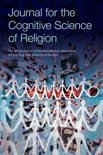
Journal for the Cognitive Science of Religion
Innovating Perspectives on Religious ThoughtJournal for the Cognitive Science of Religion, published by EQUINOX PUBLISHING LTD, serves as a key platform for interdisciplinary scholarship at the intersection of cognitive science and religious studies. With an ISSN of 2049-7555 and an E-ISSN of 2049-7563, this journal emphasizes empirical research and theoretical advancements that illuminate the cognitive mechanisms underlying religious thought and behavior. Despite its relatively recent establishment, the journal has already achieved notable rankings, including a Q1 placement in Religious Studies and commendable positions within the cognitive neuroscience and psychology categories. This underscores its importance in facilitating high-quality discourse and innovative research. Researchers and students are encouraged to explore the journal's contributions as it seeks to broaden our understanding of religion through cognitive lenses, while addressing contemporary issues and theoretical debates in this rapidly evolving field. The journal is accessible to a global audience, dedicated to fostering an inclusive environment for inquiry and knowledge dissemination in the study of religion.
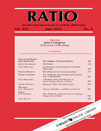
Ratio
Fostering Intellectual Exchange for a Deeper UnderstandingRatio is a prestigious peer-reviewed journal published by WILEY, specializing in the field of Philosophy. Since its inception in 1988, Ratio has committed to advancing philosophical discourse, addressing contemporary issues, and exploring foundational questions that shape our understanding of the world. With an impressive impact factor and a 2023 classification as a Q1 journal in Philosophy, it holds a significant position in the academic community, ranked #207 out of 806 in the Arts and Humanities category according to Scopus, placing it in the 74th percentile. While primarily subscription-based, Ratio provides a platform for rigorous scholarship and intellectual exchange, inviting contributions from researchers, professionals, and students eager to engage with cutting-edge philosophical debates. The journal's continuous evolution through 2024 and beyond underscores its relevance and influence, making it a vital resource for anyone dedicated to the study of philosophy.

Investigaciones Fenomenologicas
Fostering Dialogue in the Realm of PhenomenologyInvestigaciones Fenomenologicas is a pioneering journal in the field of phenomenological research, dedicated to exploring the depths of human experience and consciousness. Published by the UNIV NACL EDUCACION & DISTANCIA-UNED in Madrid, Spain, this journal serves as a vital platform for scholars and practitioners who strive to deepen their understanding of phenomenology and its applications in various disciplines, including psychology, education, and the social sciences. With a commitment to fostering intellectual dialogue, Investigaciones Fenomenologicas invites contributions that challenge conventional paradigms and enrich the academic landscape through empirical studies, theoretical discussions, and critical analyses. While currently not open access, the journal’s exclusive focus on phenomenology makes it an essential resource for researchers and students aiming to stay abreast of the latest developments and methodologies in this evolving field. ISSN: 1885-1088.
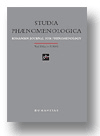
Studia Phaenomenologica
Advancing Philosophical Dialogues through PhenomenologyStudia Phaenomenologica is a distinguished academic journal published by the Romanian Society of Phenomenology, devoted to the exploration of philosophical themes and discourses inspired by phenomenological methodology. Established in 2001 and set to continue through 2024, this journal has rapidly established itself within the field, achieving a notable Q2 classification in the Philosophy category of recent journal rankings. With an ISSN of 1582-5647 and an E-ISSN of 2069-0061, it offers a platform for scholarly contributions that examine the intersections of phenomenology with contemporary philosophical inquiries. Although not an open-access journal, its publications are accessible to a broad audience of researchers and professionals keen on advancing their understanding of philosophical dialogues. With a commendable Scopus ranking of #394 out of 806 in the Arts and Humanities - Philosophy category, this journal is positioned as a vital resource for scholars interested in both classical and modern perspectives. The journal’s commitment to contributing to the philosophical landscape makes it indispensable for anyone engaged in rigorous philosophical study.

Integrative Psychological and Behavioral Science
Integrating Knowledge from Diverse Fields for Deeper InsightsIntegrative Psychological and Behavioral Science is a premier scholarly journal published by Springer, dedicated to advancing the understanding of complex psychological and behavioral processes. As an essential resource for researchers and practitioners alike, this journal features peer-reviewed articles that span diverse disciplines, including psychology, anthropology, cultural studies, and philosophy, reflecting its broad interdisciplinary scope. With an impressive impact factor and categorization across various quartiles, including Q1 in Cultural Studies and Philosophy, it stands out in the academic landscape, fostering innovative research that informs both theory and practice. The ISSN for this journal is 1932-4502, and the E-ISSN is 1936-3567. While the journal does not currently operate under an open access model, it ensures rigorous academic standards and accessibility through institutional subscriptions. With converged years from 1969, 1976, and from 2007 to 2024, Integrative Psychological and Behavioral Science remains a vital platform for dialogue and discovery in the pressing issues that shape human behavior and mental processes.
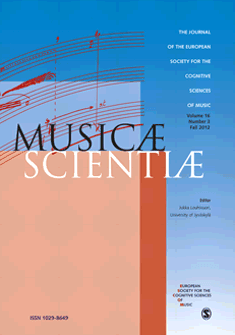
MUSICAE SCIENTIAE
Unveiling the Psychological Dimensions of Musical ExperienceMUSICAE SCIENTIAE, published by SAGE Publications Ltd, is a prestigious interdisciplinary journal situated at the intersection of music and psychological studies. Established in 1997, this journal has garnered an impressive reputation, as evidenced by its 2023 Scopus rankings, where it ranks #2 in Music (Arts and Humanities) and #51 in Experimental and Cognitive Psychology. With a considerable impact factor and categorized in the Q1 and Q2 quartiles, it stands as a key resource for researchers, students, and professionals interested in the cognitive processes related to music engagement and its applications. Although it does not operate under an open access model, MUSICAE SCIENTIAE provides valuable insights and empirical studies that contribute to the ever-evolving understanding of music's impact on human behavior and cognition. By fostering a robust platform for scholarly dialogue, this journal continues to significantly influence research and practice within its fields.